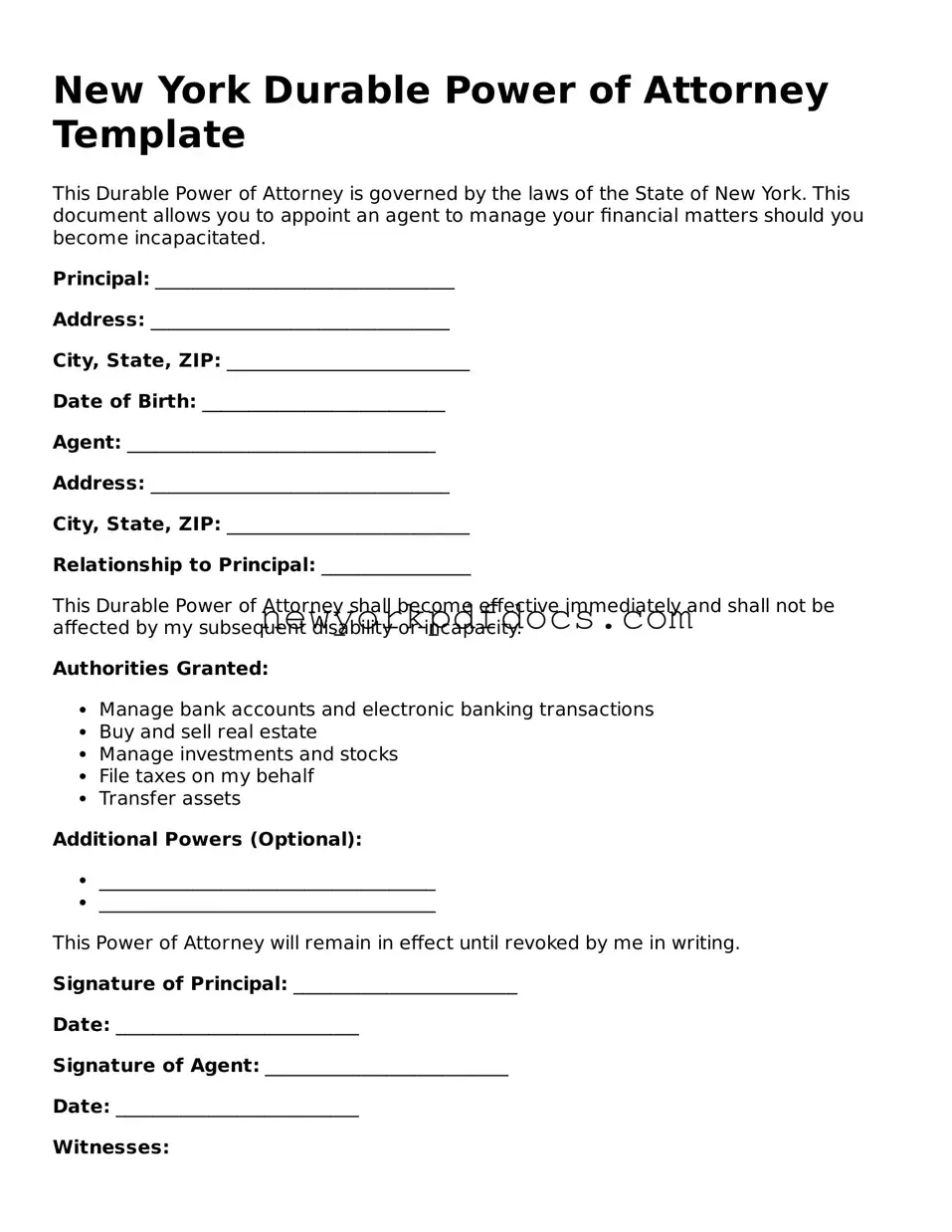Valid Durable Power of Attorney Document for New York
A New York Durable Power of Attorney form is a legal document that allows an individual, known as the principal, to appoint someone else, called an agent, to make financial and legal decisions on their behalf. This form remains effective even if the principal becomes incapacitated, ensuring that their affairs are managed according to their wishes. Understanding this document is crucial for anyone looking to plan for the future and protect their interests.
Open My Document Now

Valid Durable Power of Attorney Document for New York
Open My Document Now
Your form isn’t finalized yet
Edit, save, and download Durable Power of Attorney online with ease.
Open My Document Now
or
⇓ Durable Power of Attorney PDF
